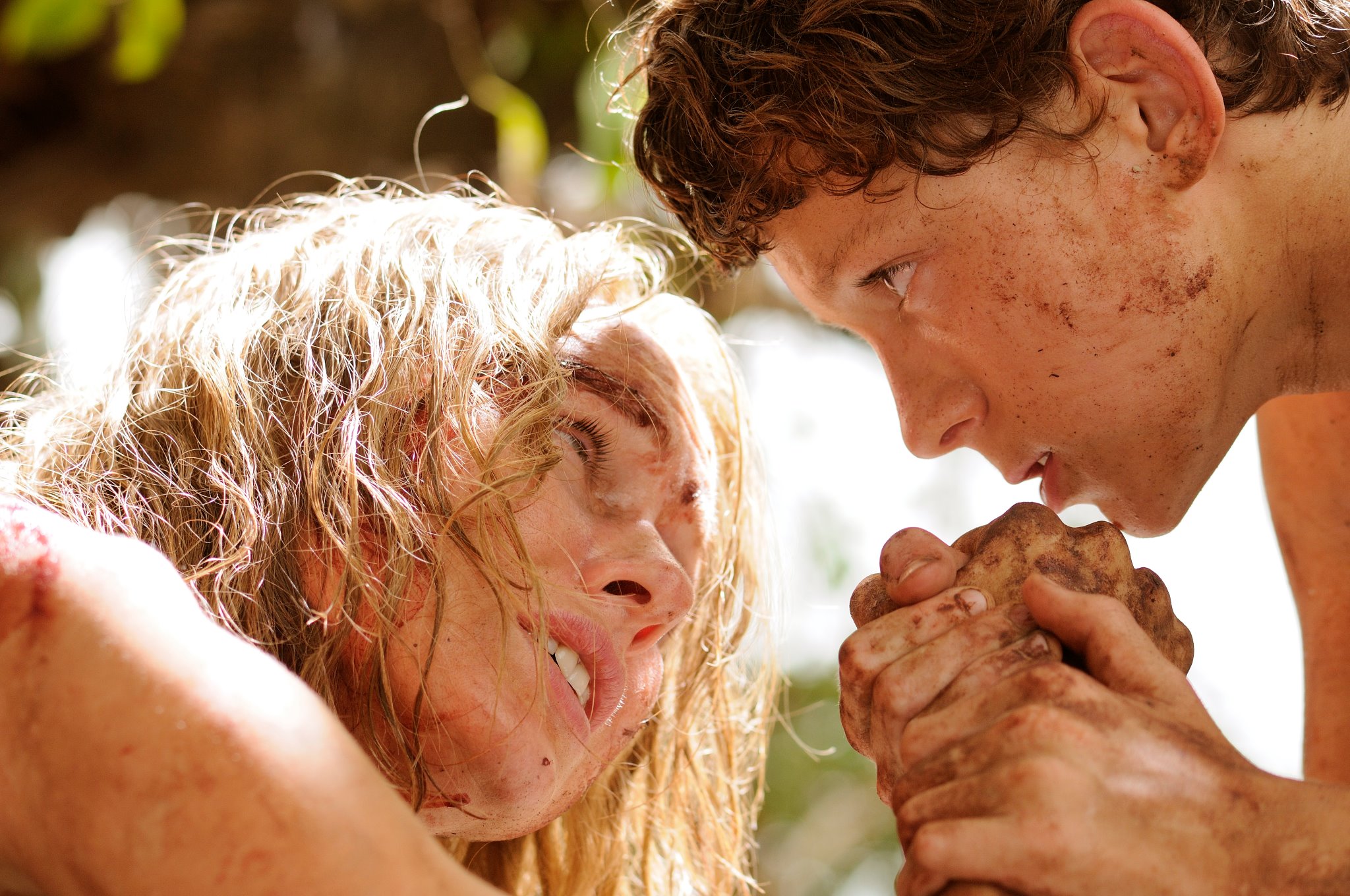1. Nashville There's so much to love about my favorite television show of the moment, from its two female leads -- Connie Britton and Hayden Panetierre deserve all the superlatives being thrown at them as well as a pair of matching Golden Globes next month -- to the political and musical intrigue, to the original songs, which almost tempted me, for the first time ever, to buy a TV soundtrack. Alas, I resisted that particular urge. I prefer to hear Nashville's songs while re-watching the episodes.
2. Fiona Apple She wrote the songs that made me think the most this year, and her interview soundbites -- confusing though they were at times -- accomplished pretty much the same thing.
3. Gallic men They've been practically inescapable this year, both off-screen (so many of them running around Bangkok on any given weekend night) and on. First, The Artist's Jean Dujardin rightfully snatched Oscar from George Clooney's and Brad Pitt's Hollywood grips. Then along came Jean-Louis Tritignant in Amour and Matthias Schoenaerts in Rust and Bone. Everybody's talkin' about their female leads -- Emmanuelle Riva and Marion Cotillard, respectively -- much like in 2001, when everyone was all about In the Bedroom's Sissy Spacek, at the expense of Tom Wilkinson, who more or less carried that film. Hopefully, Wilkinson's fate (a much-deserved Best Actor nomination) awaits Tritignant and/or Schoenaerts on January 10 when the Oscar nominations are announced.
4. Songs of the Year: The Lumineers "Ho Hey" and Frank Ocean's "Thinkin Bout You" In a 2012 dominated by dreadful dance-pop (musically speaking, the worst of 2012), I was relieved that quality non-cookie cutter songs could still qualify for commercial success and Grammy consideration.
5. Great women in films For the second time in two decades, my favorite performance of the year came from a movie with my favorite color in its title. The first time was Juliette Binoche in 1993's Trois Couleurs: Bleu. This year's best and best: Rachel Weisz in The Deep Blue Sea, which I'm still flashing back to in my mind weeks after watching it. Honorable mention: Sarah Silverman and Feist in Take This Waltz -- the former for delivering my favorite movie line of 2012 (not in the clip below, but read it here), and the latter for 2012's best soundtrack moment, a cover of Leonard Cohen's "Closing Time" that you can't buy on iTunes (or anywhere) but remains in heavy rotation in my head.
7. Upstart Brits I can't believe that not one of them -- neither Alex Clare nor Emeli Sandé nor Paloma Faith nor Ellie Goulding nor Jessie Ware nor Song of the Year nominee Ed Sheeran -- managed to grab the attention of the people responsible for coming up with Grammy's Best New Artist line-up.
8. Rihanna's Unapologetic I don't understand what the hell she's doing with Chris Brown, but as long as she keeps releasing albums as sturdy as this one, I promise to continue not to care.
9. Love -- and suspension of disbelief -- in the afternoon Or more accurately, in the morning, since that's when I indulge on YouTube. With One Life to Live's former executive producer and head writer guiding the once-sinking ship, General Hospital was the only must-see daytime soap left. It offered a year's worth of dramatic intrigue, entertaining implausibilities (how many people can come back from the dead in one small upstate New York town?), nostalgia value (thanks to all the returning vets, not all of them from the dead) and a little bit of the cancelled One Life to Live (courtesy of three Llanview transplants who were integrated into the Port Charles canvas with varying degrees of success). There were also three performances (Jason Thompson as Patrick Drake, Finola Hughes as Anna Devane and the great Jane Elliot as Tracy Quartermaine) that rivaled anything I saw after dark, in prime time. (Pay attention from 10:17 to 10:59 below to watch Elliot at the height of her acting powers.)
10. Perfect Places Just when I thought I might be kind of over Southeast Asia, along came two holiday experiences -- Krabi in Southern Thailand and Ubud on Bali -- to pull me in again. I'll be back.


















.jpg/220px-Passion_(2012_film).jpg)